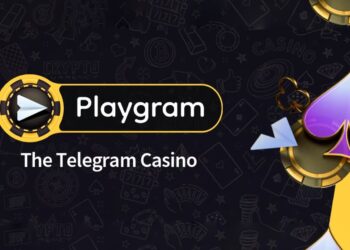If you are working on your resume and applying to jobs, you know that skills are the name of the game. But you may wonder, what does it mean when they ask about hard skills vs. soft skills? Below, we’ll discuss what hard and soft skills are and uncover the differences between them. We will also look at a few examples of each. You check here for more examples of hard and soft skills.
Hard Skills – What Are They
No, hard skills are not those that are more difficult to learn. They are “hard” in the sense of being “concrete” or “in a fixed manner.” In other words, hard skills are technical skills. They are abilities you learned during the course of your education or on-the-job training.
Soft Skills – What Are They
Soft skills are more difficult to define than hard skills. Rather than being specific to the tasks a job entails, they are more generic and transferable between jobs. Soft skills have also been labeled personality traits or personal qualities. They are not generally learned or taught but cultivated throughout your career and life experiences. Even so, they are not random but are relevant to the job at hand.

What Is the Difference Between Hard and Soft Skills?
The difference between hard and soft skills is that of measurability and how you gain the skills in the first place. Hard skills are gained through training or education. They can be taught more or less quickly. Soft skills are generally not taught, though you can work to improve your own soft skills by learning about them and cultivating them.
Hard skills are also measurable. You can measure, for example, how well a person uses a computer program or a piece of machinery. You can time them or check for accuracy. You can quiz someone on necessary knowledge of a subject and score their answers. Soft skills are harder to measure. You would be hard-pressed to grade someone’s general communication skills or interpersonal skills, for example, on a numerical scale. But everyday situations make it abundantly apparent whether a person can use these skills or not. When looking for a job, each posting will have a definite list of hard skills – abilities you need to have in order to get the job done. The hard skills on your resume will most likely change as you progress in your career. Soft skills, on the other hand, typically remain the same, though you may add new soft skills in time or get even better at the ones you’ve already mastered.

Examples of Hard Skills
Below are some hard skills that are relevant in today’s job market. You will notice that some are highly specific (software, programming languages, etc.), while others are broad categories.
● A/B testing
● Accounting and finance
● Acting
● Adobe Creative Suite (Photoshop, InDesign, etc.)
● Adobe Premiere Pro
● Agile methodologies, such as Scrum
● Ahrefs
● Analytical skills
● Android Development
● Angular and Node Apps
● Any use of data to explore a problem and/or make a decision
● Apache
● Authentication Systems
● Automotive services, parts, and design
● Automotive servicing certifications
● Blockchain, AI, andmachine learning
● Budgeting
● Business and data analysis
● C#
● CSS
● Cashier skills
● Certificates or certifications
● Civil Engineering
● Cloud applications, such as JSON, Rest, and RPC
● Cloud architecture
● Cloud middleware technologies
● Cloud and distributed computing
● Color correction
● Computer troubleshooting
● Computer skills
● Content Management Systems (CMS), such as WordPress
● Copyediting, including grammar, flow, syntax, spelling, and punctuation
● Copywriting
● Corel VideoStudio Ultimate
● Cryptography
● Data engineering
● Data entry
● Data management systems, such as Colleague
● Data mining
● Data presentation
● Database management
● Design software like Figma and Sketch
● Design skills
● Diagnostics
● Digital product design software, such as InVision or Zeppelin
● Digital communication
● Digital Security
● Electronics and electrical engineering
● Email writing
● Encryption algorithms
● Final Cut Pro
● Foreign languages
● Formal presentations
● Google Analytics and Google Search Console
● Grant writing
● Graphic Design
● HTML/CSS/Javascript
● Healthcare-related licenses
● Heavy machinery operation
● Illustration
● Incident response
● Investigative journalism
● Java
● Javascript
● Language skills
● Learning management systems, such as Blackboard, Canvas, or Eagle
● Lesson plan creation
● Machine learning
● Macro/Microeconomics
● MailChimp
● Management skills
● Marketing campaign management
● Marketing skills (SEO/SEM)
● Microsoft Office Suite and Google Drive Suite
● Mobile and web development
● MySQL
● Natural language processing
● Network monitoring software such as Wireshark and Nagios
● Networking communication
● Objective-C
● PMP certification
● PPC
● PageOptimizer Pro
● Patient care and using specific medical instruments
● Perl
● Photo composition
● Photo or video editing
● Pivot tables
● Presentation skills
● Print Design
● Programming languages
● Project lifecycle management
● Project management software, such as Trello and Zoho
● Python
● Report writing
● Reporting
● Resource management
● Risk assessment and management
● SAS
● SEMrush
● Search Engine Marketing (SEM)
● Search Engine Optimization (SEO)
● Server Maintenance
● Smart Contract Development
● Social Media
● Software Revision Control Systems
● Statistical Analysis and Data Mining
● Storage and Data Management
● Storyboarding
● Storytelling
● Strategic planning
● Swift
● Trello
● Typography
● User Experience (UX) Design
● User Interface (UI) Design
● Virtual and host-based firewalls
● Virus protection software like Ping Identity, Portswigger BurP Suite, or Symantec
● Web architecture and development framework
● Writing press releases
● XML
● Zoom
● iOS app development
Examples of Soft Skills
● Adaptability
● Attention to detail
● Communication
● Creativity
● Critical thinking
● Dependability
● Empathy
● Integrity
● Leadership
● Organization
● Problem-solving
● Teamwork
● Time management
● Willingness to learn














































































































